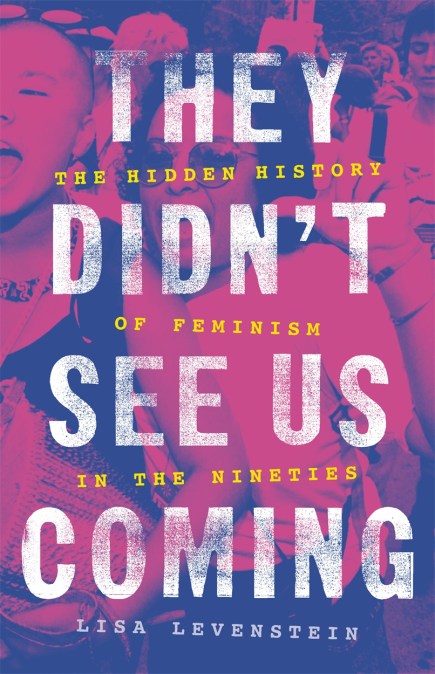They Didn’t See Us Coming
On sale
6th August 2020
Price: £25
Genre
Society & Social Sciences / Society & Culture: General / Social Groups / Gender Studies, Gender Groups / Gender Studies: Women
Selected:
Hardcover / ISBN-13: 9780465095285
On January 21, 2017, massive demonstrations in Washington DC and sister marches held in over 600 American cities drew crowds of over four million people. Popularly called ‘The Women’s March,’ it became the largest single-day protest in American history. The feminism that shaped the consciousness of millions in 2017 had distinct roots in the 1990s.
In They Didn’t See Us Coming, historian Lisa Levenstein argues we have missed much of the past quarter century of the women’s movement because the conventional wisdom is that the ’90s was the moment when the movement splintered into competing factions. But by showcasing voices and stories long overlooked by popular culture and scholars, They Didn’t See Us Coming shows that this decade was actually a time of intense and international coalition building. This activism centered around the growing influence of women of color, women with disabilities, women from the global South, and people of ranging gender expressions and identities. Together, they built a movement from the margins. Exclusion sparked action. Moments like the 1995 Beijing Women’s Conference, whose major players included Betty Friedan and Bella Abzug and where Hillary Clinton famously declared, ‘Women’s rights are human rights,’ were also stages for less-remembered but no less important calls to action. Wheelchair riders staged a ‘crawl in’ protest when a panel on disabilities was held on the third floor of a building with no elevator-a consciousness-raising moment that informed much of the work around disabilities for the remainder of the decade. Meanwhile, new tools like e-mail, listservs, and discussion boards brought people with common purpose into instant contact; activists working on campuses and in culture, like Riot Grrls and Guerilla Girls, organized in ad hoc and less visible ways, without figureheads but with clarity of purpose. All this work reveals a thriving (but changing) women’s movement. A necessary and fresh understanding of a transformative period in the history of American and international feminism, They Didn’t See Us Coming also offers an urgent road map for thinking about organizing today and continuing to build on the work of these extraordinary activists.
In They Didn’t See Us Coming, historian Lisa Levenstein argues we have missed much of the past quarter century of the women’s movement because the conventional wisdom is that the ’90s was the moment when the movement splintered into competing factions. But by showcasing voices and stories long overlooked by popular culture and scholars, They Didn’t See Us Coming shows that this decade was actually a time of intense and international coalition building. This activism centered around the growing influence of women of color, women with disabilities, women from the global South, and people of ranging gender expressions and identities. Together, they built a movement from the margins. Exclusion sparked action. Moments like the 1995 Beijing Women’s Conference, whose major players included Betty Friedan and Bella Abzug and where Hillary Clinton famously declared, ‘Women’s rights are human rights,’ were also stages for less-remembered but no less important calls to action. Wheelchair riders staged a ‘crawl in’ protest when a panel on disabilities was held on the third floor of a building with no elevator-a consciousness-raising moment that informed much of the work around disabilities for the remainder of the decade. Meanwhile, new tools like e-mail, listservs, and discussion boards brought people with common purpose into instant contact; activists working on campuses and in culture, like Riot Grrls and Guerilla Girls, organized in ad hoc and less visible ways, without figureheads but with clarity of purpose. All this work reveals a thriving (but changing) women’s movement. A necessary and fresh understanding of a transformative period in the history of American and international feminism, They Didn’t See Us Coming also offers an urgent road map for thinking about organizing today and continuing to build on the work of these extraordinary activists.
Newsletter Signup
By clicking ‘Sign Up,’ I acknowledge that I have read and agree to Hachette Book Group’s Privacy Policy and Terms of Use

